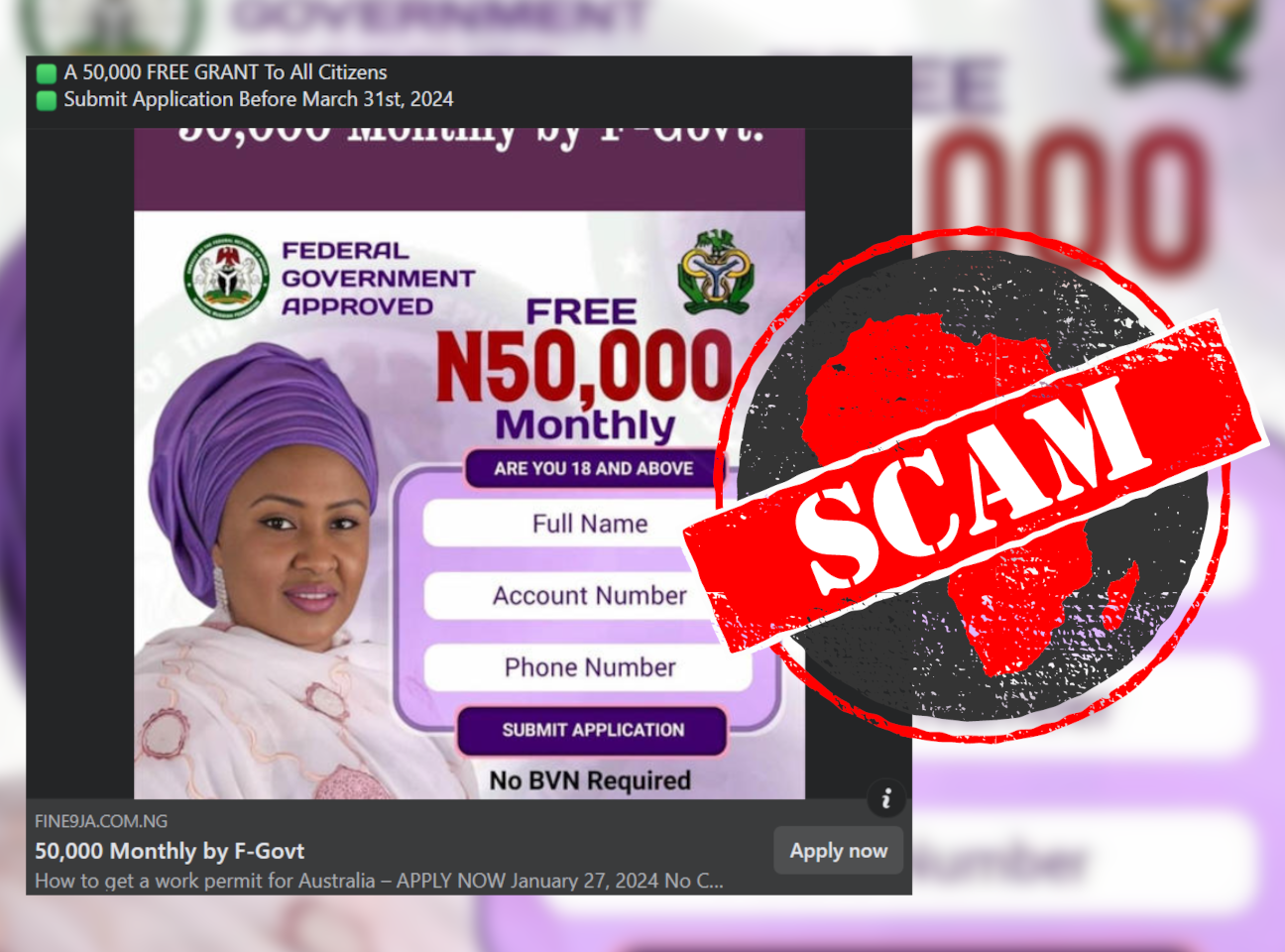IN SHORT: A Facebook post claims that Nigeria’s former first lady Aisha Buhari is dolling out 50,000 naira to Nigerians. This is false and just a scam.
“A 50,000 FREE GRANT To All Citizens. Submit Application Before March 31st, 2024” says a Facebook post claiming that Nigeria’s former first lady is giving out 50,000 naira grants to all Nigerians.
The post is sharing a link to a website, which our web browser flagged as unsafe. The link shows a graphic featuring a photo of Aisha Buhari.
The same claim and link have been posted here, here and here.
But is the former first lady really giving out cash grants through a suspicious website? We checked.

Classic engagement bait
Aisha Muhammadu Buhari is the wife of Muhammadu Buhari, who was president of Nigeria from 2015 to 2023. It would be highly unlikely that such a prominent person would be using Facebook to administer a cash grant.
When we clicked on the link, despite the warning from our internet browser that it posed a phishing threat, it led to an unrelated website with an article on how to get a work permit in Australia. The article made no mention about the N50,000 grant supposedly advertised in the Facebook posts.
We found no media reports about any grants given out by Aisha Buhari.
These posts are examples of social media engagement bait. They prompt interaction to boost reach without offering any real rewards. Often, the aim is to redirect traffic to a website or social media profile. Such sites might also exploit users by gathering their personal data, which could be used for identity theft.
For more tips, read our guide on how to spot Facebook scams here.
Republish our content for free
For publishers: what to do if your post is rated false
A fact-checker has rated your Facebook or Instagram post as “false”, “altered”, “partly false” or “missing context”. This could have serious consequences. What do you do?
Click on our guide for the steps you should follow.
Publishers guideAfrica Check teams up with Facebook
Africa Check is a partner in Meta's third-party fact-checking programme to help stop the spread of false information on social media.
The content we rate as “false” will be downgraded on Facebook and Instagram. This means fewer people will see it.
You can also help identify false information on Facebook. This guide explains how.




Add new comment